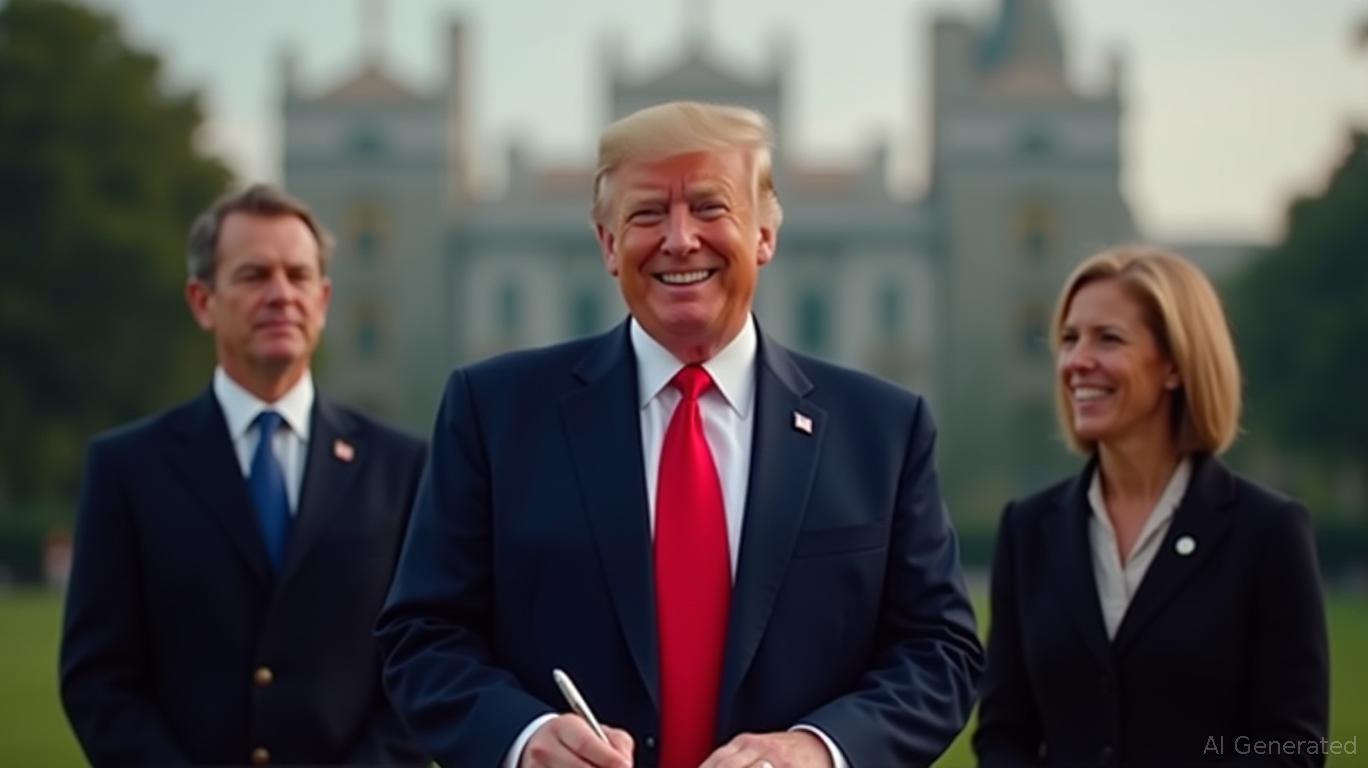Bitcoin News Update: Bitcoin's Function as a Safe Haven Returns Amid U.S. Debt Reaching $38 Trillion
- Binance seeks U.S. reentry after Trump pardons founder CZ, reigniting debates over regulatory fairness and political influence. - Bitcoin faces $109,100 resistance amid $38 trillion U.S. debt concerns, with short-term holders at risk of capitulation below key support levels. - Critics warn of SEC/CFTC hurdles for Binance's return, while proponents highlight Bitcoin's fixed supply as a hedge against dollar devaluation. - Rising institutional crypto adoption and ETF filings signal growing mainstream accept
The U.S. cryptocurrency sector is experiencing a significant transformation as renewed optimism sweeps through, driven by a mix of regulatory, economic, and political factors. Binance, the largest crypto exchange globally, is preparing to re-enter the U.S. market after President Donald Trump granted a pardon to its founder, Changpeng "CZ" Zhao. At the same time, growing alarm over the country's soaring $38 trillion national debt is sparking fresh interest in
Bitcoin has struggled to maintain momentum above $109,100, with blockchain analytics provider

The political fallout from the pardon has also sparked intense criticism. Senator Elizabeth Warren, a Democrat, accused the administration of undermining the justice system, referencing Binance’s financial connections to Trump’s family through a stablecoin project. Meanwhile, Zhao has voiced his belief in crypto’s importance to the U.S. economy, stating on Twitter that the industry will "generate significant wealth for the nation," as reported by
Amid ongoing regulatory ambiguity, the U.S. debt crisis is increasing the appeal of alternative investments. Treasury figures show the
Nevertheless, critics remain skeptical. Financial analyst Peter Schiff and economist Nouriel Roubini argue that Bitcoin’s price swings and speculative character prevent it from being a true safe haven. The recent $700 million in crypto liquidations demonstrates the market’s vulnerability to volatility. Still, institutional interest is rising, with major players like T. Rowe Price and VanEck seeking approval for crypto ETFs, indicating a trend toward broader acceptance, as also noted by CoinEdition.
The intersection of Binance’s potential U.S. return, regulatory challenges, and the national debt dilemma underscores the changing role of cryptocurrencies in a fragmented financial system. Despite ongoing obstacles—from political disputes to technical issues—the convergence of these elements is fostering an environment ripe for innovation and investment. As the
Disclaimer: The content of this article solely reflects the author's opinion and does not represent the platform in any capacity. This article is not intended to serve as a reference for making investment decisions.
You may also like
Blockchain’s $35 Billion Move Into Real-World Assets: tZero Targets IPO in 2026
- tZero Group plans 2026 IPO, explores pre-IPO funding despite being unprofitable. - Blockchain's $35B real-world assets trend drives tokenized securities growth via platforms like tZero. - Competitors Kraken, Securitize, and Gemini also pursue 2026 public listings to gain institutional validation. - Regulators globally balance innovation with investor protection, tZero emphasizes compliance as key differentiator.

Ethereum Updates: MegaETH Secures $350M in ICO Funding as Investors Aim to Address Ethereum Network Congestion
- MegaETH's Ethereum layer-2 ICO raised $350M in pre-deposits with a $7B hypothetical FDV, driven by 100,000+ KYC-verified participants. - The oversubscribed token sale (5x capacity) highlights demand for solutions addressing Ethereum's congestion, with allocations based on social/on-chain activity. - Promising 100,000 TPS and sub-10ms block times, MegaETH's testnet claims "instant" transactions, positioning it as a competitor to Arbitrum and Starknet. - U.S. participants face 1-year lock-ups under MiCA-co

Bitcoin News Update: Trump’s Selig Pick Seeks to Position U.S. as World Leader in Cryptocurrency
- Trump nominated SEC's Michael Selig to lead CFTC, advancing pro-crypto policies to position the U.S. as a global "crypto capital". - Selig, with expertise in digital asset enforcement, replaces withdrawn candidate Brian Quintenz amid industry lobbying by figures like the Winklevoss twins. - His confirmation could accelerate the CLARITY Act, clarifying SEC-CFTC jurisdiction for crypto, supported by $15B institutional investment in 2024. - A government shutdown complicates Senate approval, but lawmakers ai

Pinterest is testing AI-driven custom boards tailored to individual users
